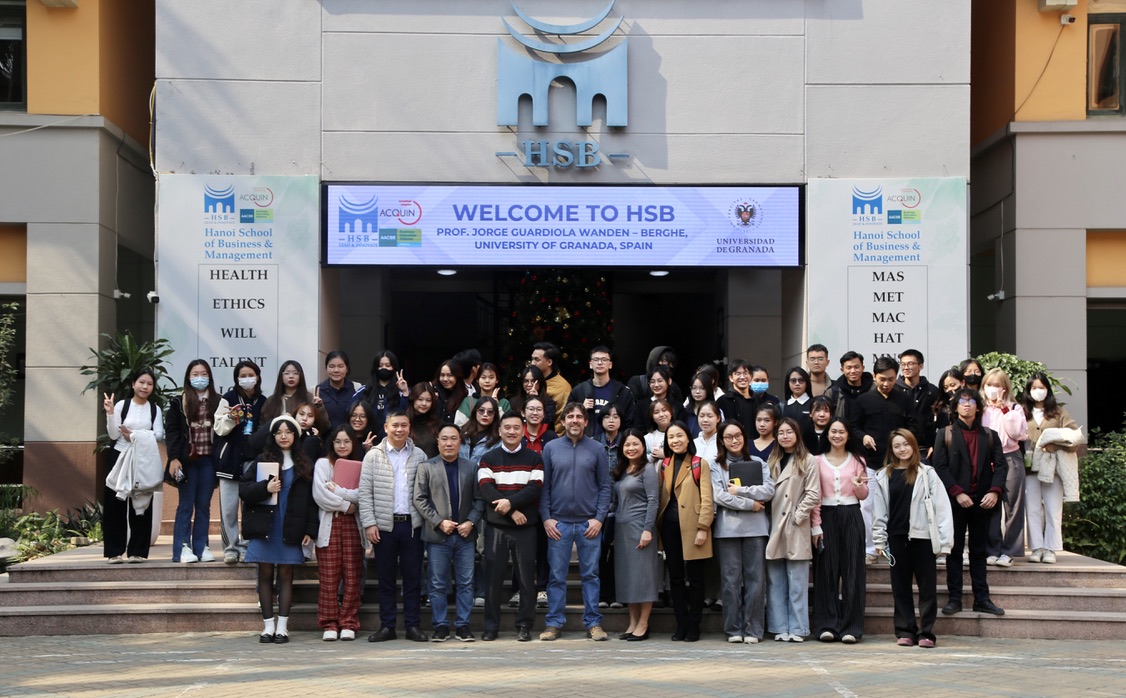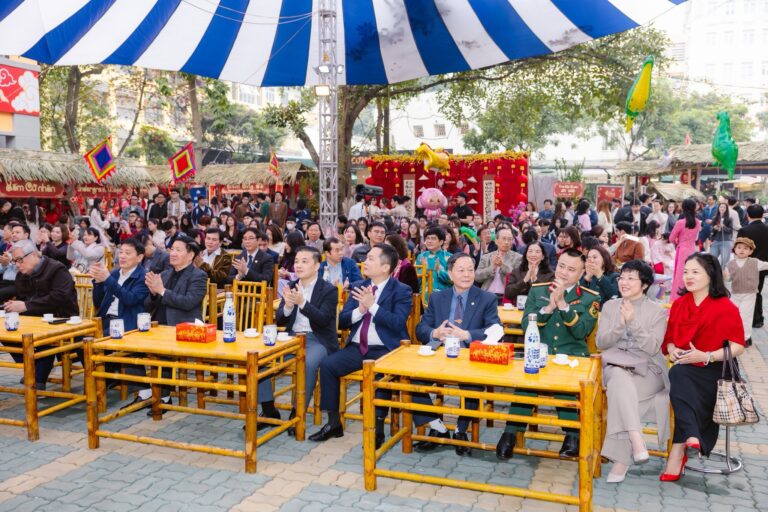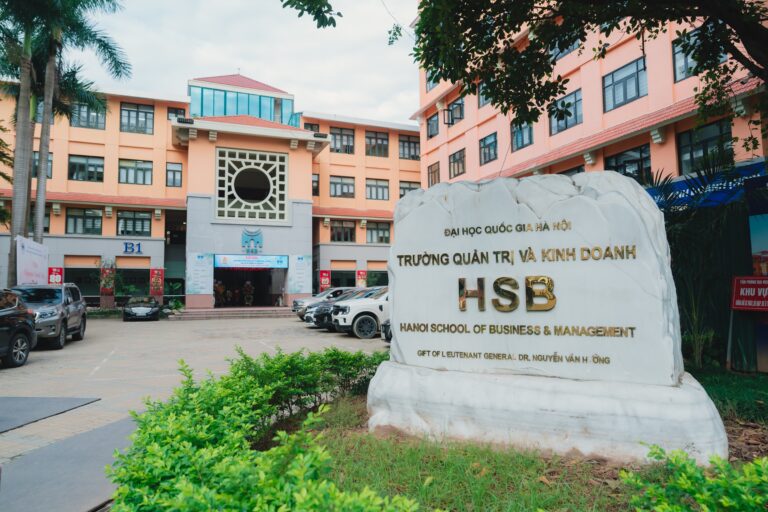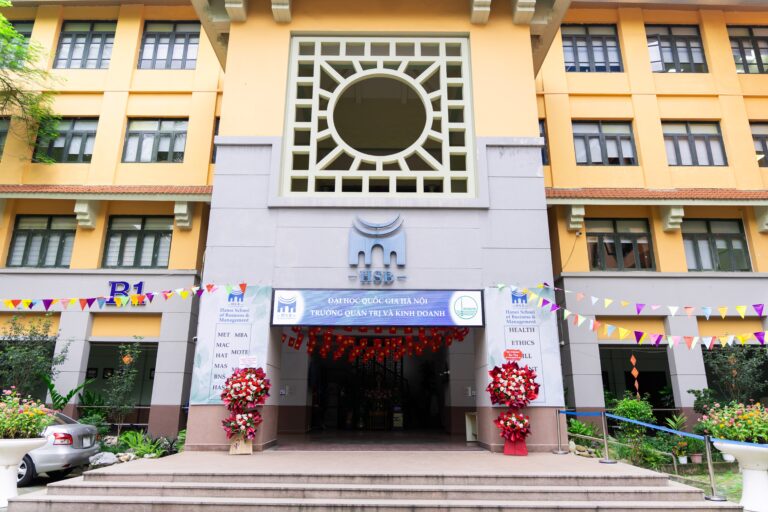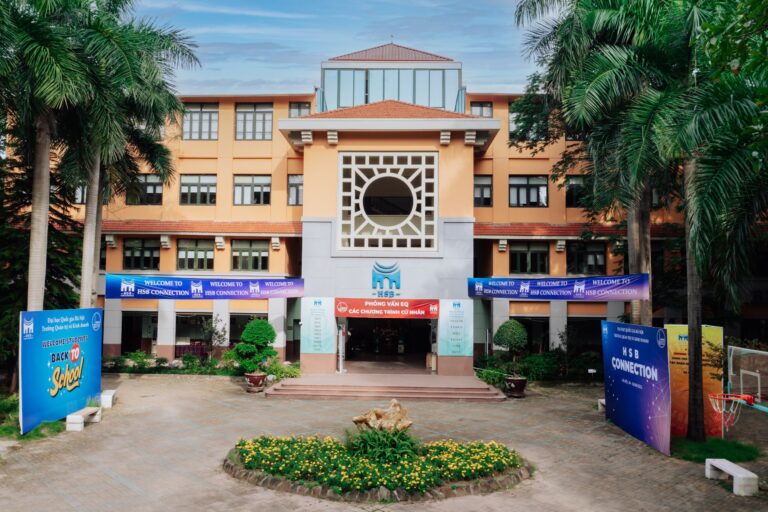On the morning of December 23, seminar “HAPPINESS ECONOMICS IN THE GLOBALIZED WORLD” took place at the Vo Nguyen Giap Auditorium, featuring Professor Jorge Guardiola Wanden – Berghe from the University of Granada, Spain, and students from the School of Business and Management (HSB).
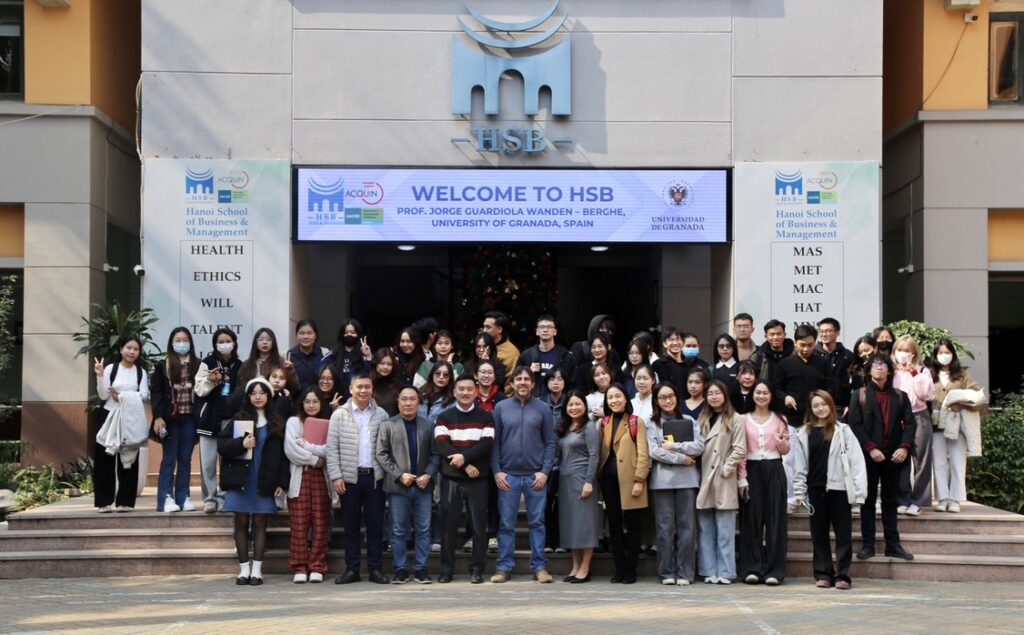
Professor Jorge Guardiola is a lecturer specializing in Applied Economics at the University of Granada, Spain. He’s renowned for his extensive research on enonomics, human development, happiness/subjective well-being and poverty alleviation. Dubbed the “Master of Happiness Economics”, he brought to the auditorium a wealth of fresh concepts and perspectives, providing practical examples of the relationship between “happiness” and “economics”.
First, to find out what’s “Happiness Economics”, we must understand the meaning of “happiness.” The professor explained that “happiness is the experience of feeling or becoming well, and also a state of subjective well-being.”
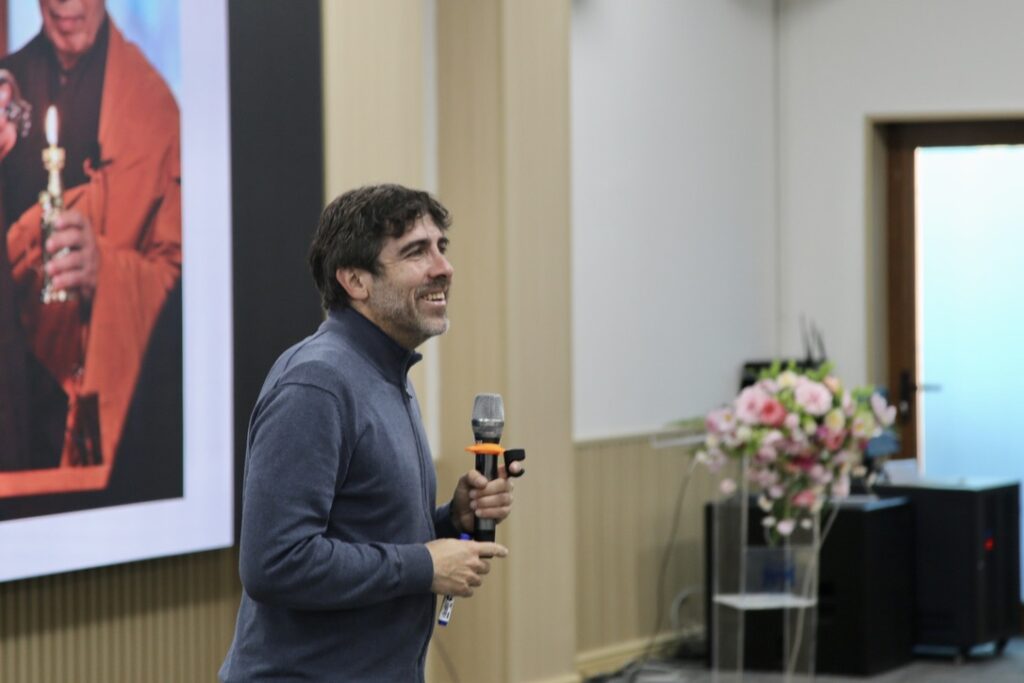
Prof. Guardiola cited the studies of Mariano Rojas to brought out the Happiness Taxonomy: Hedonic, emotional, cognitive and spiritual.
To further expand on the concept of “happiness,” Prof. Guardiola presented additional arguments regarding the measurement of happiness across various dimensions, to find out others happiness through their stories or mind, also highlighted the contradictions and disadvangates in the pursuit of a voice for happiness through hedonic treatment or sensitive topics.
After established a clear understanding of what happiness entails, Prof. Guardiola proceeded to share his insights on the concept of Happiness Economics. He explained that “Happiness Economics is the relationship between economics and happiness.” This relationship is evaluated through various aspects such as age, gender, civil status, employment, relationships, spiritually, and income.
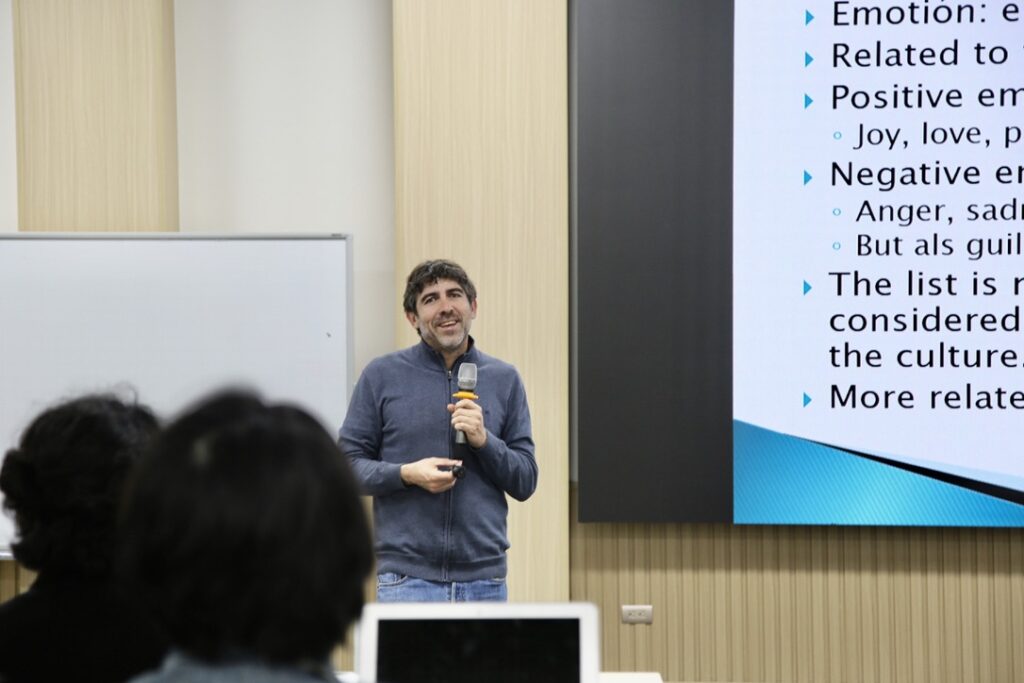
The professor emphasized the strong correlation between these factors and presented several arguments to clarify this connection, such as through marginal income, the importance of income, and basic needs. He also demonstrated these points through human competitive psychology and the behavioral studies of psychologist Daniel Kahneman, including concepts like the Focusing Illusion and the American Dream.
Alongside this, another factor that Professor Guardiola discussed to emphasize the correlation between “happiness” and “economics” is extrinsic motivation and materialism. For the global economy, these factors help drive growth, yielding high profits for businesses and greater tax revenue. However, he also pointed out the issues with materialism. According to him, “Capitalism, as an economic system, foster materialsm though aids and other ways, generating human suffering as a cost for maintaining the system.” This highlights the different aspects of factors influencing the Happiness Economics.
In addition, other influencing factors such as the position goods, relational goods, and the Easterlin paradox were also mentioned by the professor, providing the audience with further insights into the economic factors that affect happiness. These points also stimulate deep thinking about optimizing resources to enhance the quality of life.
The seminar was very excited, with active interaction between the guest and HSB students. Participants not only enjoyed an engaging exchange of knowledge but also broadened their understanding of the practical factors that contribute to building and effectively applying Happiness Economics in both life and work.
